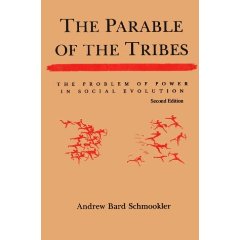There are some gems in this book, but it is *not* anywhere near the kind of blindingly brilliant, deeply philosophical work that the publicists would have you believe. He is a talented and very wealthy (inherited wealth) Frenchman of the Jewish faith who could be called the Bill Gates of French philosophy, fwith irst-rate marketing.
The author is clearly a courageous and inquisitive individual, and I would rank him third, after Robert Young Pelton and Robert Kaplan, in the “journalist-philosopher-adventurer” category. He has been to all of these places, he has seen with his own eyes, and he writes thoughtfully, if often tediously, about what he has seen.
The real gem in the book is the connection he makes between 9-11 and our deliberate ignorance of the many wars, genocides, crimes against women and children, torture, corruption, etcetera that we in the West have manifested. He writes with conviction and insight about the “meaningless war” across Africa, South Asia, around the globe, where entire regions have descended into a chaotic hell of kill and be killed, work and die, slavery or death, rape then death. His point, which I like very much, is that history does not end, it recycles, and in 9-11 and the global war on terrorism what we have is a “homecoming” of all these wars to America and its Western allies.
This is not, however, completely original, in the sense that the “Map of World Conflict & Human Rights” that I have been handing out to my adult students (thanks to Berto Jongman in The Netherlands for creating it, and to the European Centre for Conflict Prevention and Goals for Americans Foundation, among others, for funding its creation) ably documents all of this is a single compelling document, and many books in the 490+ that I have reviewed cover all aspects of these “ungovernable regions” in great detail.
The author is half absurd and half correct when he condemns the United Nations for its zealous pursuit of Israel as a racist and terrorist state, while the United Nations largely ignores the many genocides taking place from Russia and China to Indonesia and Brazil and Central America and onwards. He is absurd on the first count, correct on the second.
The book is fully worth four stars, definitely worth purchasing, for its articulation of a European view on “the heart of darkness” as it exists today. I was especially taken with his discussion of Buddhist versus Hindu terrorism and extremism and the use of child soldiers in Sri Lanka, since it makes the point that other religions, not just Islam and Christianity, spawn cycles of terrorism and ethnic violence.
The book concludes on a note worthy of the greatest philosophers, a reflection on the death of memory within Western civilization, the death of *moral* memory. Having just returned from Denver, where I was privileged to observe a two-week Office of Personnel Management course on National Security, a first-class endeavor, I was struck by the recurring theme, across virtually all of the world-class lecturers: “morality matters.” Morality has a tangible value in helping nations, organizations, and individuals “get it right.” The last two pages of the book are the best, and conjure up clear and frightening pictures of billions of dispossessed swarming over the European and US cities, bringing the despair we have ignored to our doorstep. Ignore history, ignore evil, and it will eventually, inevitably, come to your doorstep. We–or perhaps even more sadly, our children and grandchildren–will pay for our moral cowardice and our historical blindness. In these final reflections, the author does demonstrate a brilliance that requires us to attend to his future reflections.
More recent books supportive of this author's insights:
Legacy of Ashes: The History of the CIA
Web of Deceit: The History of Western Complicity in Iraq, from Churchill to Kennedy to George W. Bush
The Looming Tower: Al Qaeda and the Road to 9/11 (Vintage)
9/11 Synthetic Terror: Made in USA, Fourth Edition
The Sorrows of Empire: Militarism, Secrecy, and the End of the Republic (The American Empire Project)
The Fifty-Year Wound: How America's Cold War Victory Has Shaped Our World
War Is a Racket: The Anti-War Classic by America's Most Decorated General, Two Other Anti=Interventionist Tracts, and Photographs from the Horror of It
Blood Money: Wasted Billions, Lost Lives, and Corporate Greed in Iraq
Rumsfeld: His Rise, Fall, and Catastrophic Legacy












